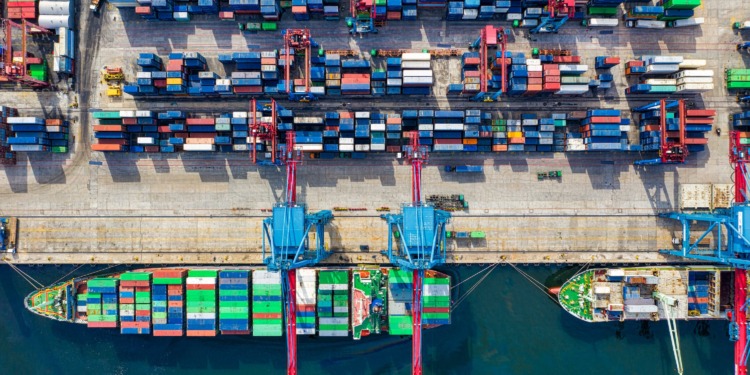On May 13, it was World Fair Trade Day, and attention was brought back to the German Supply Chain Act. The German Supply Chain Act (Lieferkettengesetz in German) aims to promote more fairness and environmental protection for everyone, no matter their point in the supply chain.
The Act applies to all companies with 3,000 or more employees and all enterprises which “have their central administration, principal place of business, administrative headquarters, statutory seat or branch office in Germany.” Starting from 2024, the Act will apply to companies with 1,000 or more employees.
The law requires companies falling under the act to regularly and systematically address human rights violations and environmental risks in their direct supply chain.
When enacted at the beginning of 2023, this due diligence obligation for German companies was seen as a “step in the right direction” by the international human rights research and advocacy NGO, Human Rights Watch. Industrial representatives, however, saw the law as another bureaucratic hurdle for companies wishing to settle down in Germany.
In February 2023, the European Union (EU) proposed an EU directive on supply chain due diligence. Negotiations on the law have started and will be held throughout 2023. Undeniably, Germany will be able to bring their own experiences with supply chain laws to the negotiations.
Why are supply chain laws so important?
Under international human rights law, private entities are not legally accountable for human rights violations. While soft law instruments such as the Guiding Principles on Business and Human Rights are not binding for companies, domestic legislation such as acts regulating the supply chain can impose human rights due diligence obligations on private businesses.
Especially in a globalised world, where multinational corporations have increasing influence, holding companies accountable for their direct and indirect involvement in human rights violations and environmental impacts is essential.
Robust legal frameworks designed to regulate big companies’ supply chain due diligence can help prevent these companies from contributing and profiting from human rights abuses in other countries. Exploitation will no longer be a competitive advantage if the supply chains are regulated. Notably, in countries where governments are not enforcing the Universal Declaration of Human Rights (UNDHR), supply chain laws can act as an indirect economic pressure tool.
Related Articles: Traceability and Information in the Garment Supply Chain | Predicting Social and Environmental Impact Through Due Diligence | Sustainable Chocolate Is Impossible Without Higher Prices, Report Says | Is shea butter actually sustainable?
However, concerns have been raised that supply chain laws don’t require companies to do enough in ensuring human rights compliance. The German Act, for instance, only requires companies to employ a reasonable effort due diligence along their supply chain.
As Human Rights Watch stated: “The law does not require companies to undertake thorough and systematic due diligence on indirect suppliers further down the supply chain, which is often where the most serious abuses occur.”
Furthermore, they do not give victims of human rights abuses legal protection or cause to stand before a court of law.
Besides ethical considerations, however, some compliance experts see supply chain acts as an excellent opportunity for businesses to understand their supply chains better and even boost their revenue.
Germany's new supply chain law just entered into force. Find out how it's getting businesses to respect human rights
pic.twitter.com/kDICMHQ1il
— Human Rights Watch (@hrw) January 7, 2023
What can we learn from Germany’s Supply Chain Act?
Before even coming into force, the Supply Chain Act caused many disagreements. Now that the act has been in place for five months, its strengths and weaknesses may become more apparent.
One great asset which has become visible is the Act’s broad scope. The Act is not designed to target any specific industry, rather, it is a blanket obligation for all companies wishing to operate in the German market.
That said, Germany gradually introduced the supply chain due diligence requirements in different sectors of the economy. This made the transition to the final act smoother and allowed companies to build environmental and human rights risk assessments and due diligence schemes.
While the increased bureaucracy and cost were an initial critique of the act, many businesses have implemented software and technologies which help to keep these costs to a minimum. Again, the gradual introduction of the Act helped companies prepare for additional costs and labour.
However, Alexander Sandkamp of the Kiel Institute of the World Economy (IfW) criticises that suppliers in developing countries are currently at risk of losing their German customers due to the Supply Chain Act.
In an interview with DW, he commented that German customers could start to simply move their production to developed countries, as it is cheaper to monitor and check that human rights are respected there than in developing countries.
Without better communication and understanding of the Act in Germany and developing nations, this will continue to pose a problem.
One thing is certain: The lessons learned and the concerns raised by the German Supply Chain Act can help the EU and other countries implement similar laws and help Germany improve their supply chain law. With negotiations on an EU-wide due diligence law continuing this year, it will be interesting to see how the German experience will guide the EU. On June 1, a vote on the EU supply chain act is expected to take place in the European Parliament.
Editor’s Note: The opinions expressed here by the authors are their own, not those of Impakter.com — In the Featured Photo: Birds-eye view of freight containers. Featured Photo Credit: Tom Fisk










